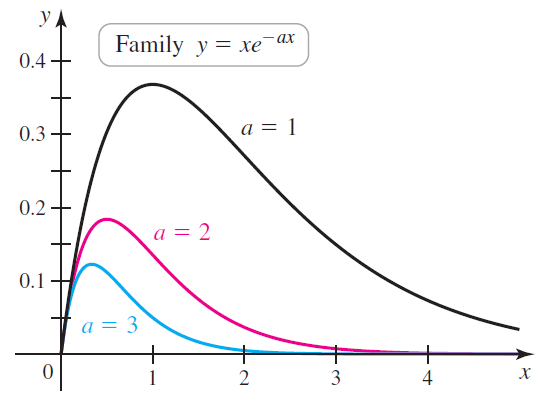The curves y = xe -ax are shown in the figure for a = 1, 2, and
Question:
The curves y = xe-ax are shown in the figure for a = 1, 2, and 3.
a. Find the area of the region bounded by y = xe-x and the x-axis on the interval [0, 4].
b. Find the area of the region bounded by y = xe-ax and the x-axis on the interval [0, 4], where a > 0.
c. Find the area of the region bounded by y = xe-ax and the x-axis on the interval [0, b]. Because this area depends on a and b, we call it A(a, b), where a > 0 and b > 0.
d. Use part (c) to show that A(1, ln b) = 4A(2, (ln b)/2).
e. Does this pattern continue? Is it true that A(1, ln b) = a2A(a, (ln b)/a)?

Fantastic news! We've Found the answer you've been seeking!
Step by Step Answer:
Related Book For 

Calculus Early Transcendentals
ISBN: 978-0321947345
2nd edition
Authors: William L. Briggs, Lyle Cochran, Bernard Gillett
Question Posted:





